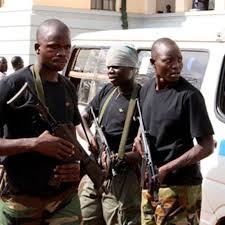By CHANGE OF GUARDS
Since the 2021 sham electoral cycle, the Museveni regime has systematically kidnapped, abducted, and arrested opposition NUP supporters. The lucky ones have been detained without trial by the military court martial, while the unlucky ones have become victims of enforced disappearance. Despite pressure from the opposition, civil society, family members, and other entities, the regime remains unmoved. The last seemingly reasonable attempt occurred when the opposition boycotted Parliament around late 2023. However, the initiative was compromised at the last minute, at a cost of Shillings 500m given to the Leader of Opposition in Parliament. Since the regime’s game plan is to break the spirits of NUP supporters, the success of opposition pressure would negatively impact the regime. Consequently, NUP sacked the then Leader of Opposition, Mathias Mpuga.
Mindful of the possibility of the new Leader of Opposition reactivating the same pressure, the regime is contemplating releasing some of the said victims. A stage-managed scheme involving the newly appointed Minister, Balam Barugahara, and NUP’s Katerega saw Museveni declaring that he would consider pardoning some of the victims. Since then, the matter has dominated public debate. The opposition NUP and a section of other Ugandans have argued that Museveni has no powers to pardon suspects. Indeed, the Constitution only mandates him to pardon convicts who are serving their sentences. They further argue that instead, the detainees should be accorded a speedy trial. This is a big contradiction because you don’t expect a military dictator to stick to constitutionalism and the rule of law. What about those who are feared to have died or disappeared at the hands of the regime? The fact is that the regime’s game plan is to detain without trial for as long as it wishes.

Kidnappings and abductions of victims by the Museveni regime’s security agencies, and their detention without trial by his military courts, are as old as the regime itself. Twenty years ago, the regime pounced on the then Reform Agenda supporters and its leader, Dr. Kiiza Besigye. They were accused of all sorts of crimes, including rape, terrorism, treason, and others. They were detained without trial by the military court martial for many years. The so-called PRA suspects even successfully challenged their detention in court and were awarded compensation. However, nothing was paid to them, and their detention without trial continued. When the High Court granted them bail, Museveni deployed CMI Commandos dubbed Black Mambas, who raided the court for rearrests. Thereafter, Museveni publicly declared that he had found a secure place of detention for the said victims. Some victims died in detention, others simply escaped from detention and fled the country, while the majority continued to languish under detention without trial. Dr. Wilbroad Okung escaped from detention, while individuals like Manenero, Musasizi (Dr. Besigye’s brother), and others were killed in detention.
After the passage of several years, the regime swung into action with similar offers of pardoning them. The then-super Minister, Hope Mwesigye, and then Police chief, Gen. Kalekyezi, were at hand in brokering deals between Museveni and the victims. They were offered release through the grant of amnesty in exchange for confessions of having engaged in treasonous activities. With no hope of getting justice and regaining their freedom, they succumbed to blackmail. The first group, which included Lawyer Sam Okiring, simply fled the country immediately after release. This development caused trouble for the second batch of victims, as their deals were subjected to stringent conditions. The only detainee who refused to be released on amnesty, Capt. Amon Byarugaba, was freed 8 years later in 2015 without charges after spending 12 years in detention. The exiles have been striking deals with Museveni in exchange for freedom to return to the country. The resilience and determination of those detainees and exiles were premised on the hope that their struggle would see the Museveni regime falling.

Therefore, if NUP cannot sustain protests and boycotts for the unconditional release of detainees, plan for their escape from illegal detention, or bring an end to the Museveni regime, then it should welcome their release by Museveni. Maybe it can then focus on facilitating their fleeing the country after release. Their preoccupation should also be on securing those others who are yet to be kidnapped, abducted, summarily executed, or detained without trial. Otherwise, expecting a fully-fledged military dictatorship to afford justice to its political opponents is missing the point.
INFORMATION IS POWER AND THE PROBLEM OF UGANDA IS MUSEVENISM







Discussion about this post